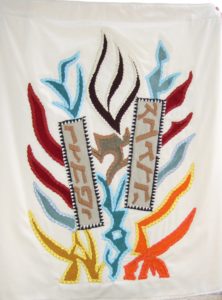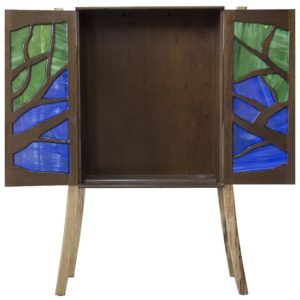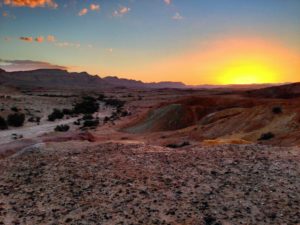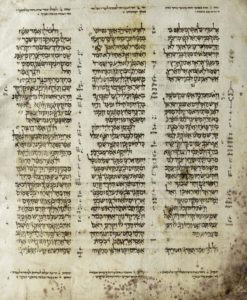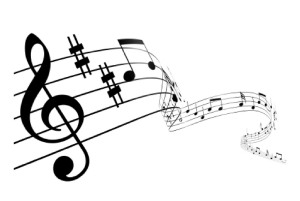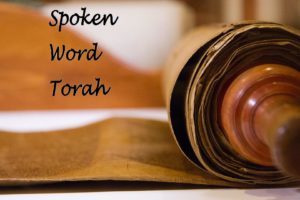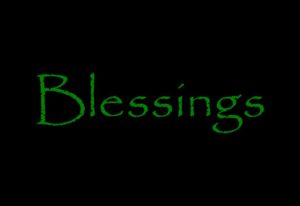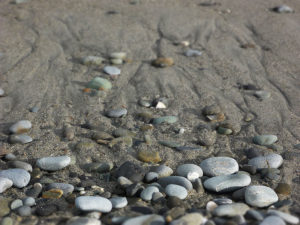 This meditation is based on four lines in Tetazveh (Exodus 28:9-12) instructing the creation of stone shoulder fasteners for the high priest’s Ephod (see postscript). Called avnei zikaron, remembrance stones, they were engraved with the names of the 12 tribes, the heritage of the Israelite people. This meditation asks: whose names will you carry as your heritage? It appears in This Precious Life: Encountering the Divine with Poetry and Prayer from CCAR Press.
This meditation is based on four lines in Tetazveh (Exodus 28:9-12) instructing the creation of stone shoulder fasteners for the high priest’s Ephod (see postscript). Called avnei zikaron, remembrance stones, they were engraved with the names of the 12 tribes, the heritage of the Israelite people. This meditation asks: whose names will you carry as your heritage? It appears in This Precious Life: Encountering the Divine with Poetry and Prayer from CCAR Press.
Stones of Remembrance
Whose names
Will you engrave upon your shoulders
When you stand before G-d in prayer?
Whose names
Will you carry in your heart
As you sing songs of blessing and praise?
G-d,
Remember us in the name of our ancestors:
Abraham and Sarah;
Rebecca and Isaac;
Leah, Jacob, and Rachel;
Moses, Miriam, and Aaron; and
________________________.
[add names from biblical times who are meaningful to you]
G-d,
Remember us in the name of our sages:
Rabbi Meir, Rabbi Akiva, and Rabbi Nachman;
B’ruriah, Yalta, and Ima Shalom;
The Rambam and the Tur;
Rabbis Regina Jonas and Abraham Joshua Heschel; and
________________________.
[add names of sages of the past who are meaningful to you]
G-d,
Remember us in the name of our teachers:
________________________.
[add names of current scholars and teachers who have influenced you]
These are the stones of remembrance,
The righteous and the driven,
The certain and the seeker,
The silent and the outspoken,
The steadfast and the heartbroken,
Who have led us,
Taught Your Torah,
And rallied congregations and assemblies
To Your service.
Let my name,
One day,
Be worthy.
Let my life
Become a tribute to Your wondrous works,
A remembrance of Your gifts throughout the generations.
© 2021 CCAR Press from This Precious Life: Encountering the Divine with Poetry and Prayer
Postscript: The Ephod was an apron covering the High Priest’s tunic and robe, serving as the place where the Choshen, the breastplate, was fastened. The Soncino/Hertz commentary says the engravings were to remind the people of their unity; the Stone Chumash says they reminded G-d of the righteousness of the people. The Women’s Torah Commentary notes that “inscriptions asking G-d to ‘remember’ supplicants for good attest to the implicit hope that G-d will always be mindful of the people and presumably bring them blessings.”
Please consider making a contribution to support this site and my writing. For usage guidelines and reprint permissions, see “Share the Prayer!” For notices of new prayers, please subscribe. You can also connect on Facebook and Twitter.
Photo Source: WikiMedia Commons
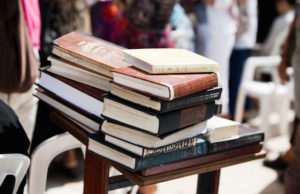 A short meditation on learning Torah from everyone.
A short meditation on learning Torah from everyone.

